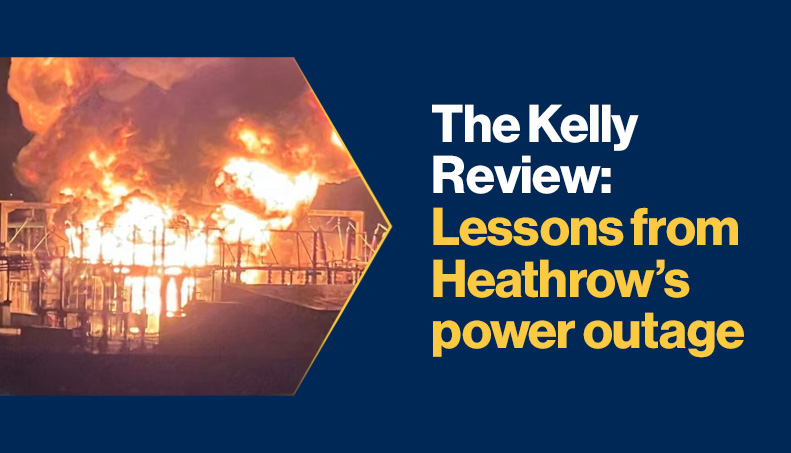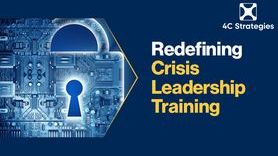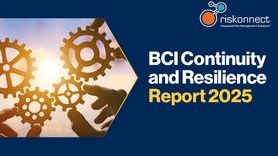The Kelly Review: Lessons from Heathrow’s power outage

The Kelly Review, examining the circumstances surrounding the closure of Heathrow Airport on 21st March 2025, was released yesterday. Commissioned by Heathrow, the review focused on the handling of the North Hyde London substation fire that disrupted global operations.
In her summary of the findings, the Rt Hon Ruth Kelly, former Secretary of State for Transport said:
“The evidence confirms that Heathrow made the right decisions in exceptionally difficult circumstances. Whilst the disruption was significant, alternative choices on the day would not have materially changed the outcome.”[1]
Findings from the Review, among others, state that Heathrow had a well-established Command and Control structure for major incidents and there were a large number of pre-prepared contingency plans which were used in the response and sped up the return to full recovery, indicating that Heathrow was well prepared to tackle the incident described as incredibly rare by The Chief Executive of National Grid.[2]
While the Review concluded that Heathrow made appropriate decisions during the incident, it also revealed vulnerabilities. Among its findings, several key discussions and recommendations stand out, particularly the ongoing challenge of systemic resilience.
The review highlighted that Heathrow:
‘Has identified the need to develop at a system / subsystem level five-to-seven-year masterplans for critical utilities, including power, in a model which does not depend on further significant infrastructure developments.’[3]
This acknowledgment highlights the importance of developing a systemic resilience strategy and the need to place more emphasis on identifying and preparing for risks linked to critical national infrastructure (CNI) failures. BCI research consistently ranks CNI failures among the top causes of disruption, reflecting a long-standing pattern of vulnerability. [4]
Risk assessment and investment
The review also states that Heathrow viewed this type of power outage (entire loss of power from one intake) as a low likelihood event for the purposes of its risk assessment and discussed Heathrow’s reliance on power in depth.
Despite the airport’s layered infrastructure for electricity supply, and the presence of multiple back-up power systems designed to maintain critical operations, the Review found that, during the incident, nearly all emergency power sources connected to the North Hyde supply would have been depleted before main power was restored.
As a result, the Review recommended an assessment of the effectiveness of back-up power for critical systems and suggested that:
‘Heathrow prioritises its engagement with its airline partners and the CAA and other stakeholders around the need for investment in resilience…taking account of the features of the Airport’s current infrastructure assets, its location and intensity of operations as well as the various legitimate but competing needs for further investment.’[5]
This statement will resonate with practitioners who regularly face challenges in securing resources and investment for resilience strategies, particularly when the risks involved are not seen as a priority by top management or in formal risk assessments.
Siloed efforts
The review also stated that Heathrow was aware at a technical level of its vulnerability to losing power from one intake but ‘details about the length of the possible outage and precise impact on systems in this scenario were less well-known by those outside the technical team’.[6]
BCI research[7] indicates that siloed working is an ongoing challenge faced by resilience practitioners. The presence of fragmented approaches highlights the need for renewed efforts to promote integration and embed more cohesive, cross-functional ways of working.
A separate report, commissioned by the government and led by the National Energy System Operator (NESO), will examine the power outage at Heathrow Airport and is due by the end of June[8], however, the Kelly Review provides valuable insights for practitioners looking to benchmark and strengthen their own resilience efforts. Regardless of sector or region, it offers a useful case study on effective practices, with recommendations to improve response and planning.
Kelly Review Published | Heathrow
Kelly Review Report May 2025 (unreserved)










































